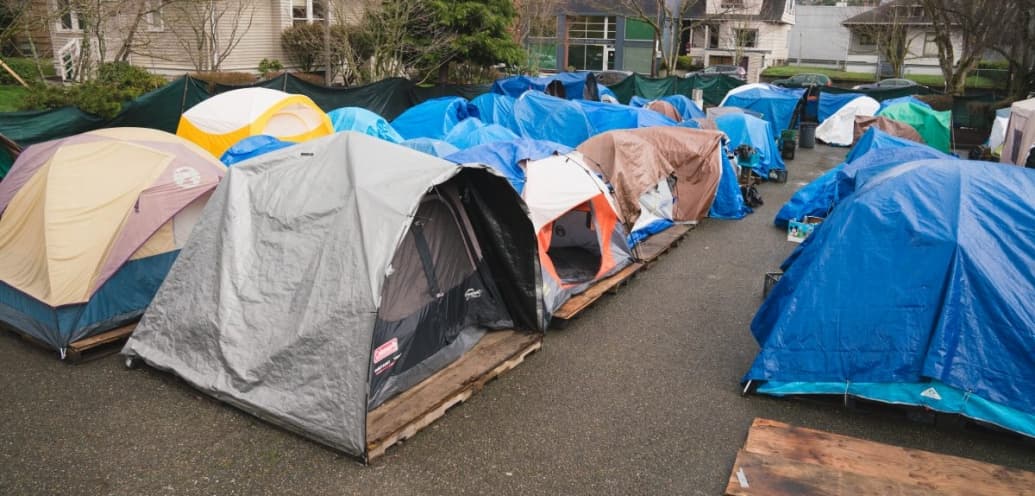For Seattle residents experiencing homelessness and living in tent cities, a few tools are key to managing community life.
Eleven organized, portable communities provide living space in the Seattle area for people experiencing homelessness. Known as tent cities, these communities are managed in several different ways. Some receive funding from the city of Seattle and are housed on city land in semi-permanent locations. Others, like Tent City 3, are sanctioned by the city but are situated on private property and managed through the nonprofit organization Share/Wheel. These tent cities typically move to new sites every 90 days, often hosted on church property.
From November 2017 through February 2018, SPU’s campus hosted Tent City 3, a self-managed encampment able to support up to 100 residents. Camp space includes four portable toilets and a mobile shower, with some health services provided by public health nurses. TC3 rules include a strict code of conduct requiring sobriety, nonviolence, cooperation, and participation, and residents must have valid government IDs to stay in the camp.
SPU students, faculty, and staff helped TC3 set up and break down the encampment, and provided meals, especially hot dinners, for tent city residents.
Like any community, it takes coordination and some important tools to keep TC3 running. Our photographer captured a few of these.














